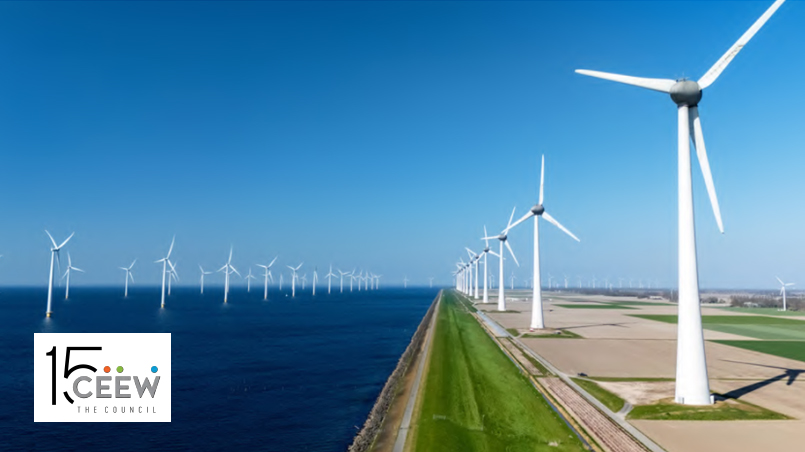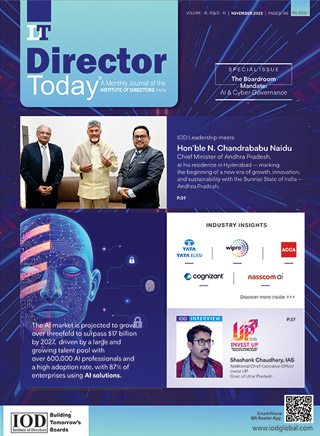Corporate News - October 2025

The Global Fintech Fest Charts a New Financial Frontier for India
The Global Fintech Fest (GFF) 2025, held from October 07-09 in Mumbai, brought together global leaders to discuss the theme "Empowering Finance for a Better World Powered by AI". Graced by Hon'ble Finance Minister Smt. Nirmala Sitharaman and the Prime Ministers of India and the UK, the event showcased the transformative potential of technology-driven finance in building a more inclusive, transparent, and sustainable global economy.
Smt. Sitharaman highlighted the following in her speech:
• Foreign Currency Settlement System (FCSS) for GIFT City: A new system enabling real-time foreign currency transactions, enhancing liquidity and efficiency within India's IFSC framework.
• Responsible Innovation: She urged fintech firms to focus on profitability, compliance, and ethical risk management while driving technological progress.
• AI Governance: Warning against the misuse of AI and deepfakes, she called for global cooperation to tackle emerging AI threats.
• GST Relief: Announced a reduction of GST on two-wheelers from 28% to 18%, bringing direct benefits of Rs.7,000–10,000 to consumers
• Global Payments Leadership: India now accounts for nearly 50% of the world's real-time digital transactions, reaffirming its leadership in digital payments and financial innovation.
• Bridging the Inclusion Gap: She emphasised the role of FinTechs in empowering MSMEs, women entrepreneurs, and gig workers, ensuring equitable financial access.
In a compelling address, Prime Minister Narendra Modi, cited the success of the JAM Trinity (Jan Dhan, Aadhaar, and Mobile) and the RBI's digital currency initiative, he outlined a vision of inclusive digital finance that is secure, scalable, and globally replicable. He further noted that India now witnesses 20 billion UPI transactions monthly, amounting to nearly Rs.25 lakh crore, symbolising the depth of India's digital economy. The Prime Minister also emphasized India's open digital frameworks from UPI, Bharat BillPay, and DigiLocker to Open Network for Digital Commerce (ONDC) and Open Credit Enablement Network (OCEN) which are enabling MSMEs and small retailers to compete on equal terms. India's Modular Open Source Identity Platform (MOSIP) initiative, adopted by over 25 countries, was cited as a powerful example of digital diplomacy driving global empowerment.
PM Modi also highlighted India's “Three Pillars of AI Governance”:
1. Equitable Access – ensuring technology reaches every citizen,
2. Population-Scale Skilling – empowering India's youth with AIready capabilities, and
3. Responsible Deployment – balancing innovation with ethics and transparency.
A significant outcome of the Event was the reinforcement of the UK–India Fintech Corridor, aimed at enabling startups to pilot innovations, scale responsibly, and collaborate with institutions such as the London Stock Exchange and GIFT City. These partnerships are expected to catalyze deeper cross-border investments and knowledge sharing. As the world's fastest growing Fintech ecosystem, India is now redefining financial inclusion and technology ethics on a global scale. From GIFT City to UPI, from ONDC to MOSIP, the message from Mumbai was clear: India is no longer just part of the fintech conversation, but it is leading it.
ECONOMY
India is rapidly emerging as global hub for services exports: NSE 
India is rapidly emerging as a global hub for services exports, with a Compound Annual Growth Rate (CAGR) of 14.8% over the past three decades, outpacing goods exports which grew at 9.8%, according to the National Stock Exchange (NSE).
India now ranks seventh globally in services exports with a 4.3% share, led by telecom, IT, and business services which contribute nearly three-fourths of total service exports. Technology exports alone crossed Rs. 17,58,800 crore (US$ 200 billion) in FY25. India has also emerged as the world's largest hub for Global Capability Centres (GCCs), with their number rising from 1,430 in FY19 to 1,700 in FY24, and projected to touch 2,200 by FY30, employing up to 26 lakh professionals. The GCC market size is expected to expand from Rs. 351,760 crore (US $40 billion) in FY19 to Rs. 8,79,400 crore (US $100 billion) by FY30. Key structural and economic reforms such as the Goods and Services Tax (GST), Insolvency and Bankruptcy Code, Real Estate Regulation Act (RERA), and corporate tax cuts have bolstered the economy. Liberalisation through faceless assessments, simplified labour laws, and performance-linked incentive schemes has boosted investor confidence, along with privatisation and globalisation measures including bank mergers, foreign trade agreements, FDI expansion, and the internationalisation of UPI.
Rupee dips 4.36% in Samvat 2081 as trade tensions weigh, bonds gain 
The rupee remained under pressure during Samvat 2081 (Hindu calendar year, beginning during the Diwali festival), depreciating by 4.36 per cent against the dollar. The decline was largely driven by escalating global trade tensions and foreign outflows. The onset and escalation of US reciprocal tariffs on Indian goods raised effective duties up to 50 per cent in some sectors, weakened investor sentiment toward Indian markets. These tariff hikes, aimed at countries including China and others in Asia, disrupted global trade flows and created a risk-off environment that weakened emerging market currencies, including the rupee.
Additionally, concerns about a widening current account deficit and reduced foreign investment inflows added to the pressure. The domestic unit hit multiple record lows during this year amid persistent foreign outflows.
RBL Bank eyes to join league of big banks post $3 billion deal with UAE's ENBD Bank 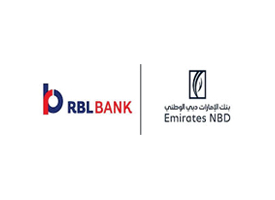
Emirates NBD is acquiring a 60% stake in RBL Bank for $3 billion. This significant deal will allow RBL Bank to launch a Wealth Management Business. The transaction is expected to be completed in five to seven months. RBL Bank will become a listed subsidiary of Emirates NBD. This move strengthens India's mid-size banks and attracts foreign investment.
Currently 13th largest in terms of market cap, the RBL Bank is eyeing top 5 position among private sector banks in the country. Post signing of the $3 billion deal to sell upto 60% stake to Emirates NBD Bank, UAE's second largest public sector bank, the RBL Bank, a midsize bank, with the fresh funds at its disposal, will soon join the league of big banks in India said R. Subramaniakumar, MD & CEO, RBL Bank on October 19, 2025.
The acquisition deal is the latest in a series of cross-border deals in India this year as the country seeks to attract foreign investment and strengthen the country's midsize banks. Months earlier, Japan's Sumitomo Mitsui Banking Corporation bought up to 25% of Yes Bank from numerous shareholders.
IMF projects India to grow 6.6% in 2025, cuts projection for next year 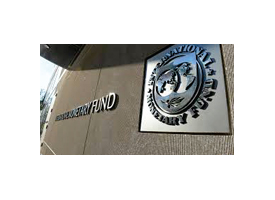
The International Monetary Fund (IMF) in the October outlook increased India's growth projections by 20 basis points to 6.6% for 2025 whilst projecting a decline of the same intensity to 6.2% in 2026. Meanwhile, the Washingtonheadquartered financial institution predicts global growth would edge upwards by 20 basis points to 3.2% this year, with the outlook for 2026 unchanged at 3.1%.
Elaborating the rationale for the upward revision for India, IMF attributed it to a carry-over effect from a “strong” first quarter which helped New Delhi “more than offset” the impact of the U.S. President Donald Trump-induced tariff regime since July. India's GDP in the June-end peaked had peaked to a five-quarter high of 7.8% driven primarily by sectors as manufacturing, services and construction. The downward revision for 2026 thus considers a fading of the momentum from the first quarter.
TECHNOLOGY
What the AWS outage reveals about the internet’s backbone 
An Amazon Web Services (AWS) disruption on October 20, 2025, centered on its “US-EAST-1” cloud region triggered a wave of failures across consumer apps, finance, government portals and parts of Amazon’s own services. Downdetector® recorded 17M+ user reports (+970% increase on average daily baseline) and disruptions at over 3,500 companies across more than 60 countries, placing this among the largest internet outages on record for Downdetector. The problem started in one of AWS’s main data centres in Virginia, its oldest and biggest site, after a technical update to the API – a connection between different computer programmes – of DynamoDB, a key cloud database service that stores user information and other important data for many online platforms. The cloud computing market is said to have a brittle foundation because it is dominated by three hyperscalers, namely AWS, Microsoft Azure, and Google Cloud, who together control two-thirds of the global market.The concentration of the internet’s core infrastructure in the hands of just a few major cloud providers has created critical single points of failure. A three-to-six-day outage at one of the top three cloud providers could cause $15 billion in damages in the US, according to a 2018 study by insurance Giant Lloyd. The risk management processes of these big tech companies are also opaque.
Samsung Electronics family to sell $1.2 billion stake amid share rally 
The mother and two sisters of Samsung Electronics Chairman Jay Y. Lee plan to sell some 1.73 trillion won ($1.22 billion) worth of shares in the South Korean tech firm, the company said in a regulatory filing. The purpose of the sale of a 0.3% stake in Samsung Electronics, is to cover tax payments and loan repayment, according to the late Friday filing with the Korea Exchange.
Experts view the sale by Lee's sisters Lee Boo-jin and Lee Seo-hyun and his mother, Hong Ra-hee, as part of the owner family's efforts to secure funds to pay their inheritance tax estimated at about 12 trillion won, following the 2020 death of Samsung patriarch Lee Kun-hee.
The sale will be handled by Shinhan Bank under a trust contract and completed by April 2026, according to the filing.
Samsung has secured supply deals with other major customers such as OpenAI, and expectations have risen that the company will be able to supply its latest high-bandwidth memory products to Nvidia.
The stock is up more than 84% this year, gaining 0.2% on Friday to 97,900 won.
Nvidia unveils first Blackwell chip wafer made with TSMC in U.S. 
There has recently been a flurry of mega deals between AI firms and chipmakers such as Nvidia, AMD and Broadcom to build data center capacity. TSMC, the world's biggest producer of advanced chips, raised its full-year revenue forecast on a bullish outlook for AI spending after posting a record profit that blew past market estimates.
TSMC's Arizona facility will produce advanced technologies including two, three and four nanometer chips, as well as A16 chips, that are essential for applications like AI, telecommunications and high-performance computing, Nvidia said.
This also aligns with U.S. President Donald Trump's efforts to strengthen U.S. technology and manufacturing leadership.
Apple clinches exclusive U.S. media rights for F1 races under five-year deal 
Apple has landed U.S. broadcast rights to Formula 1 in a five-year deal that would help the tech giant bolster its streaming service with one of the country's fastest-growing sports, following the success of its Brad Pitt-starrer "F1: The Movie".
Apple is dipping its toe into live sports but only in instances where it can acquire rights such that it can control the user experience, Senior Vice President of Services Eddy Cue told CNBC this week. Apple plans to announc additional production details and product enhancements for F1 fans in the coming months, the company said in a statement.
“This is an incredibly exciting partnership for Apple and the whole of Formula 1 that will ensure we can continue to maximize our growth potential in the U.S.,” said Stefano Domenicali, Formula 1′s president and CEO, in a statement.
Zoho rolls out free Agentic AI tools for enterprises
Zoho has announced a host of new agentic AI features for daily tasks across three categories to push customer growth and efficiency. The tools have been made available for free in Zoho's Collaboration, Customer Experience and Human Resources offerings. Zoho Workplace, the email and collaboration suite will help users look for specific emails, summarise them, draft a new email and send them, with simple prompts. The suite includes Zoho Mail, Zoho Sheet, Zoho Tables and Zoho Cliq for team chats, while the conversational AI, Ask Zia takes directions and turns executes them.
There's also a Lead Generation Agent which can sift through unread emails, identify the ones that are sales inquiries and convert them into a lead.
For the customer experience sector, Zoho Desk has rolled out AI agents for specific tasks. In human resources, Zoho Recruit, the platform for talent acquisition has tools like Candidate Matches and Job Matches which can look through resumes, job descriptions and candidate profiles to match them.
Additionally, AI-Assisted Assessment Generation can generate assessments including questions, answers and scoring weights tailored to specific jobs and requirements.
ESG
IMF’s climate promises fall short amid US backlash 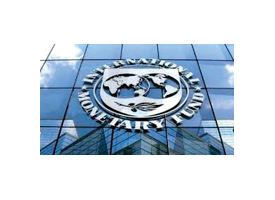
The International Monetary Fund (IMF)'s climate initiatives are falling short due to significant backlash from the United States, which is pushing to limit climate discourse and has influenced the organization to downplay climate change in favor of focusing on core economic mandates like job creation. This US-led pressure, exacerbated by a new administration, contrasts with the priorities of European and emerging market members who see climate action as a critical part of economic stability. The IMF's actions reflect this tension, leading to a cautious approach to climate financing and a potential rollback of past climate commitments.
This pushback has framed climate policy as a distraction from the IMF's core mandate of ensuring economic stability, leading to a political battle within the organization. The US-led pressure is leading the IMF to adopt a more cautious stance on climate, with recent meetings downplaying climate discussions and leadership growing wary of official climate references. It is now caught between its mandate to ensure economic stability and the political pressure to reduce its focus on climate change, leading to a contradiction in its actions.
Google Rolls out Carbon Footprint Reporting for Advertisers 
Google announced the rollout of Carbon Footprint for Google Ads, its new service aimed at enabling advertisers to measure and manage the carbon emissions related to their advertising activities. Google initially unveiled the service earlier this year, with the early availability limited to select large advertisers. With the new rollout, the service is now available to all advertisers.
According to Google, the new carbon footprint reporting service provides marketers with first-party data to help them track their advertising-related emissions across Google advertising products including Display & Video 360, Search Ads 360, Campaign Manager 360, and Google Ads. The reports will provide detailed breakouts of emissions data across Scopes 1, 2 and 3 data, with reports in accordance with the Greenhouse Gas Protocol and the Ad Net Zero Global Media Sustainability Framework, which estimates emissions across media channels using media industry and climate science standards.
UK launches Plan to Upskill workforce for 400,000 New Clean Energy Jobs 
The UK government announced the publication of its new Clean Energy Jobs Plan, including initiatives to recruit and train workers for the clean energy economy, targeting an incremental 400,000 green sector jobs by 2030. According to a government statement, the new plan comes as record government and private sector investment in clean energy in areas including renewables and nuclear is creating a boom in demand for jobs. The government statement also noted that entry level roles in the majority of occupations in clean energy pay 23% more than the same occupations in other sectors.
New initiatives in the new plan include projects to train the next generation of clean energy workers, with 5 new Technical Excellence Colleges to train young people for essential roles, a new program to match veterans up with careers in solar panel installation, wind turbine factories, and nuclear power stations, and a £20 million investment to upskill oil and gas workers for new clean energy roles, in addition to tailored schemes for ex-offenders, school leavers, and the unemployed. The plan also includes proposals aimed at ensuring strong pay, terms and conditions for clean energy sector jobs, including extending employment protections enjoyed by offshore oil and gas workers working beyond UK territorial seas to the clean energy sector, a new “Fair Work Charter” between offshore wind developers and trade unions ensuring that companies receiving public funding provide decent wages and strong workplace rights, and including workforce criteria in grants and procurements.
Airbus Partners with Siemens to Decarbonize Industrial Sites in U.S., UK 
Siemens and Airbus announced the launch of a new framework agreement to work to decarbonize four Airbus industrial sites in the U.S. and UK, through measures including renewable energy integration, smart energy management, and the use of low-carbon heat systems. Under the new agreement, Siemens will evaluate the sites and create and implement an overall decarbonization masterplan for each to implement scalable solutions to reduce energy demand and carbon emissions. The company said that it will utilize Energy System Twins to simulate and determine the best decarbonization roadmaps for each site. Engineering studies will guide the implementation, with infrastructure rollout starting in 2026. According to the companies, the measures will help deliver Airbus’ targets to reduce energy consumption by 20%, and to cut Scope 1 and 2 greenhouse gas emissions by 85% by 2030, on a 2015 basis.
MERGER AND ACQUISITIONS
Morgan Stanley Backs Corvus Energy to Decarbonize Maritime Sector 
Morgan Stanley's 1GT climate fund leads $60 million Series E to expand Corvus Energy's global low-carbon maritime battery systems. The Corvus Energy deal expands its portfolio into maritime clean tech, an area historically overlooked in climate finance due to operational complexity and long asset cycles. The consortium's participation brings both capital and industry depth. Just Climate, founded by Generation Investment Management, channels institutional capital toward scalable climate solutions, while J. Lauritzen's maritime expertise adds operational insight into fleet deployment and lifecycle performance.
For institutional investors, the deal reflects growing appetite for climate-linked private equity in sectors that blend hard technology with measurable decarbonization outcomes. By leading the funding round, Morgan Stanley's 1GT not only reinforces confidence in Corvus Energy's technology but also demonstrates how mainstream finance is moving deeper into industrial decarbonization. As global maritime regulations tighten and zero-emission vessel demand accelerates, the partnership is positioned to play a defining role in shaping the future of clean shipping.
TASE Global acquires US aerospace firm Joined Alloys for Rs. 106 crore 
Trusted Aerospace Engineering (TASE Global), based in Chennai, has announced the completion of its acquisition of Joined Alloys, a leading US-based firm specialising in aerospace manufacturing, special processes, and sheet metal fabrication and product development, for Rs. 106 crore.
With existing facilities in India and the US, this acquisition marks a strategic milestone in TASE Global's expansion in the North American market, reinforcing its commitment to building a worldclass manufacturing and assembly platform with global reach. The deal adds two factories of Joined Alloys to its manufacturing capacity. The acquisition aslso enables TASE to expand its operations into precision metal assembly. The company also plans to establish these capabilities in India and aims to invest additional capital over the next three years for large component machining, aerostructure, and additional capabilities in India.
TVS Motor to acquire Engines Engineering as it sets up global design centre 
TVS Motor Company is setting up its Global Centre of Excellence (CoE) for Design and Engineering in Bologna, Italy, and as a part of this initiative it would acquire an automotive design and engineering firm Engines Engineering S.p.A for a 5 million euro. The global CoE for Design aligns with the company's long-term vision to deliver premium, future-ready mobility solutions across international markets. With this initiative, TVS Motor will be able to reduce product development cycles, enhance design flexibility, and expand its premium portfolio, including high-displacement motorcycles, advanced scooters, and new electric mobility platforms. The expanded engineering depth will also strengthen Norton's pipeline of high-performance motorcycles, enabling it to further solidify its position as a modern luxury brand, TVS said.
TVS has come a long way from being just a strong domestic manufacturer. The company's two-wheeler exports grew significantly by 22.8 per cent in FY25, reaching 1.09 million units, led by strong performance in Africa and Latin America. The acquisition reflects TVS Motor's commitment to strengthening its design and engineering base to accelerate the creation of next-generation mobility platforms.
L&T Semiconductor acquires power module design assets of Japan's Fujitsu 
Chip design firm L&T Semiconductor Technologies said it has acquired the power module design assets of Fujitsu General Electronics of Japan. As part of the deal, L&T Semiconductor Technologies (LTSCT) has acquired R&D equipment, design patents and various intellectual properties related to power module technologies of Fujitsu General Electronics (FGEL).
The acquisition of power module technology will be a crucial step in LTSCT's growth journey and an important step towards their vision of enhancing India's presence in the global semiconductor ecosystem. This significantly strengthens their global intellectual property portfolio, and enhances their design capabilities, thus reinforcing their commitment to delivering world-class semiconductor solutions globally. The acquisition will also accelerate LTSCT's foray in power electronics design and development and expand its product portfolio in the domains of industrial, energy and automotive applications.
Author

Institute of Directors India
Bringing a Silent Revolution through the Boardroom
Institute of Directors (IOD) is an apex national association of Corporate Directors under the India's 'Societies Registration Act XXI of 1860'. Currently it is associated with over 31,000 senior executives from Govt, PSU and Private organizations of India and abroad.
Owned by: Institute of Directors, India
Disclaimer: The opinions expressed in the articles/ stories are the personal opinions of the author. IOD/ Editor is not responsible for the accuracy, completeness, suitability, or validity of any information in those articles. The information, facts or opinions expressed in the articles/ speeches do not reflect the views of IOD/ Editor and IOD/ Editor does not assume any responsibility or liability for the same.

 Quick Links
Quick Links
 Connect us
Connect us




 Back to Home
Back to Home








